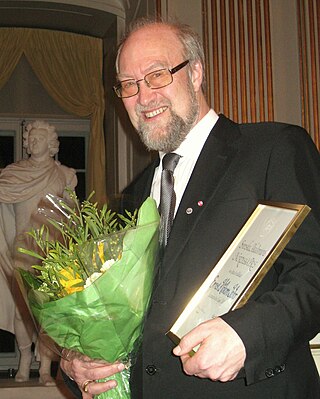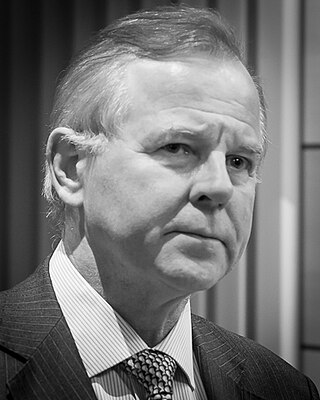
Doctor of Medicine is a medical degree, the meaning of which varies between different jurisdictions. In the United States, and some other countries, the M.D. denotes a professional degree. This generally arose because many in 18th-century medical professions trained in Scotland, which used the M.D. degree nomenclature. In England, however, Bachelor of Medicine, Bachelor of Surgery was used and eventually in the 19th century became the standard in Scotland too. Thus, in the United Kingdom, Ireland and other countries, the M.D. is a research doctorate, honorary doctorate or applied clinical degree restricted to those who already hold a professional degree (Bachelor's/Master's/Doctoral) in medicine. In those countries, the equivalent professional degree to the North American, and some others use of M.D., is still typically titled Bachelor of Medicine, Bachelor of Surgery (M.B.B.S.). A provider who holds a Doctor of Chiropractic (D.C.) degree has a "doctoral" degree and sometimes can be referred to as a "doctor," but is not the same as a healthcare provider who holds a Doctor of Medicine (M.D.) degree since the M.D. degree confers much more authoritative clinical capacities, greater autonomy, and responsibility.

Candidate of Law is both a graduate law degree awarded to law students in the Nordic region as well as an academic status designation for advanced Law School students in German-speaking countries.
A terminal degree is the highest-level college degree that can be achieved and awarded in an academic discipline or professional field. In other cases, it is a degree that is awarded because a doctoral-level degree is not available nor appropriate.
A magister degree is an academic degree used in various systems of higher education.
The Bologna process for standardisation of European higher education specified an undergraduate degree of at least three years called the "licence" or bachelor's degree, followed by a two-year diploma called the master's degree, then a doctorate, meant to be obtained in at least three years. Because of these indicated schedules, the reform is sometimes (erroneously) referred to as "3-5-8". The system applies to the European Higher Education Area.

Higher education in Norway is offered by a range of ten universities, nine specialised universities, 24 university colleges as well as a range of private university colleges. The national higher education system is in accordance with the Bologna process, with bachelor's degrees, master's degrees and doctoral degrees. Acceptance is offered after finishing upper secondary school and meeting general university admissions certification.

Norwegian School of Veterinary Science or NVH was a public university located at Adamstuen in Oslo, that educated veterinarians and veterinary nurses as well as research within aquatic medicine, food safety, comparative medicine and mammalian diseases, health and welfare. The institution had about 450 employees and 500 students. Parts of the research were conducted in Tromsø and Sandnes.
Candidate of Medicine is an academic degree awarded in Denmark, Iceland, and Norway following a six-year medical school education.
The Quality Reform was a reform initialized by the Norwegian Ministry of Education and Research after recommendation from the Mjøs committee (1998–2000). It was introduced in 2002–03 and changed the entire system of higher education in Norway to comply with the Bologna process. This process is intended to take place throughout Europe to better integrate the higher educations systems, and Norway is among the first to implement this process. The Norwegian approach was a quick and brutal removal of the old system and replacement to the new instantly.
Candidatus theologiæ (male), Candidata theologiæ (female), abbreviated cand. theol. is an academic degree with a long tradition, awarded after a six-year higher education in theology in Iceland, Denmark, and Norway. In Norway, the title has remained after the "Quality Reform". In Denmark the title is described as equivalent to Master of Theology, while in Norway it ranks higher. The title is protected by law in Denmark and Norway. In Norway it can only be issued by four institutions, NLA Høgskolen, the University of Oslo, the MF Norwegian School of Theology, Oslo and the School of Mission and Theology, now VID Specialized University, Stavanger. The latter three are private.

Ernst Håkon Jahr is a Norwegian linguist with about 230 publications, including about 50 books. He is currently (2012) dean of the Faculty of Humanities and Education at the University of Agder.

Doctor Medicinae, also spelled Doctor Medicinæ and abbreviated Dr. Med., is a higher doctoral degree in medicine awarded by universities in Denmark and formerly in Norway. It is officially translated as Doctor of Medical Science (D.M.Sc.), corresponding to similarly named higher doctorates found in some Commonwealth countries. It is regarded as a higher doctorate and officially ranks above the Danish PhD degree.

Ole Petter Ottersen is a Norwegian physician and neuroscientist. He serves as the Rector of Karolinska Institute in Sweden, and took office in August 2017. Ottersen has been professor of medicine at the University of Oslo since 1992 and served as the university's directly elected Rector from 2009 to 2017.

Halfdan Bryn was a Norwegian physician and physical anthropologist.
Peter Fredrik Holst Hjort was a Norwegian professor of medicine and politician for the Labour Party. He is best known for his work to establish the University of Tromsø, and for his work with public health.

The Faculty of Law of the University of Oslo is Norway's oldest law faculty, established in 1811 as one of the four original faculties of The Royal Frederick University. Alongside the law faculties in Copenhagen, Lund and Uppsala, it is one of Scandinavia's leading institutions of legal education and research. The faculty is the highest-ranked institution of legal education in Norway and is responsible for the professional law degree, one of the most competitive programmes at any Norwegian university.
Candidate is the name of various academic degrees, chiefly in Scandinavia, the Soviet Union, the Netherlands and Belgium. In Scandinavia, it is a higher professional-level degree usually corresponding to 5–7 years of studies, whereas in the Soviet states, it was a research degree roughly equivalent to the American Doctor of Philosophy degree. In the Netherlands and Belgium, it was an undergraduate first-cycle degree roughly comparable with the bachelor's degree.
Nicolaus Zwetnow was a Norwegian sports shooter. He competed at the 1960 Summer Olympics and the 1964 Summer Olympics.
Candidatus scientiarum (male), or candidata scientiarum (female), abbreviated as cand.scient., is an academic degree currently awarded in Denmark and formerly awarded in Norway.
Legal education in Norway refers to a graduate professional degree that qualifies the holder for the legal profession, that includes advocates (barristers/attorneys-at-law), judges and other professions that lawyers have a legal monopoly on. Norway has a united and regulated legal profession where all lawyers hold the same professional degree obtained after an integrated and comprehensive 5-year university programme with highly competitive admission requirements, that gives the right to use the legally protected title lawyer and in itself qualifies for entry-level legal practice, i.e. the entry-level positions in the legal profession such as associate advocate, deputy judge or junior prosecutor. Norwegian lawyers are organized in the trade union Norges Juristforbund.








